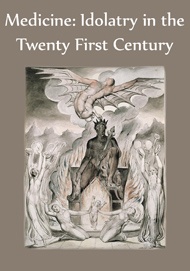
I tell you the truth, anyone who will not receive the kingdom of God like a little child will never enter it. (Mark 10:15)
What do you enjoy more? Giving a gift, or receiving one? If you are like most people, you enjoying giving gifts to others more than you do receiving gifts. However, the joy you receive back in seeing someone accept your gift is 100% dependent on that person deciding to receive it. If they don’t take it, they rob you of the joy you receive in giving the gift.
Did you know that your unwillingness to receive gifts could keep you from entering the kingdom of God? The greatest gift the world has ever seen was the gift God gave to the world through his son Jesus Christ. The one who receives this gift enters into God’s kingdom:
For God so loved the world that he gave his one and only Son, that whoever believes in him shall not perish but have eternal life. (John 3:16)
Like any gift, however, the gift does no good if the one it was intended for rejects it, and does not receive it:
He was in the world, and though the world was made through him, the world did not recognize him. He came to that which was his own, but his own did not receive him. Yet to all who received him, to those who believed in his name, he gave the right to become children of God—children born not of natural descent, nor of human decision or a husband’s will, but born of God. (John 1:10-13)
Receiving Grace: A Difficult Task for a Proud Heart

When describing to his followers and disciples how one enters the kingdom of God, Jesus often referred to children, and used them as object lessons. Jesus made it very clear that children had a special place in the heart of God:
People were bringing little children to Jesus to have him touch them, but the disciples rebuked them. When Jesus saw this, he was indignant. He said to them, “Let the little children come to me, and do not hinder them, for the kingdom of God belongs to such as these. I tell you the truth, anyone who will not receive the kingdom of God like a little child will never enter it.”(Mark 10:13-15)
Young children, until they reach a certain age, have the unique ability to receive free gifts, unhindered by their own pride, as they put complete faith in their parents or caregivers by nature. That trust can be violated, but children are born knowing they are dependent, and need someone to care for them. Hence, they are able to freely receive gifts unhindered by pride.
So when Jesus states that one must become “like a little child” in order to enter the kingdom of God, he means we must set aside our pride and admit that we are helpless without God, and are totally dependent upon him for all our needs, thereby putting us into a position to receive his gifts that he strongly desires to lavish upon us. Pride is the big stumbling block that prevents people from receiving God’s gifts.
The greatest gift of all, of course, is the gift of grace that allows us to receive salvation and eternal life. Without it, we are dead in our sins, and we are without the free gift of life that God provides.
For if, by the trespass of the one man, death reigned through that one man, how much more will those who receive God’s abundant provision of grace and of the gift of righteousness reign in life through the one man, Jesus Christ. (Romans 5:17)
How do we Receive the Ultimate Gift?
Since the free gifts God wants to give us require a humble heart that acknowledges our dependency on him, those most proud find it the most difficult to enter the kingdom of God.
Then Jesus said to his disciples, “I tell you the truth, it is hard for a rich man to enter the kingdom of heaven.” (Matthew 19:23)
By contrast, the “lowly” people of society, the “outcast” and “rejected” are often the most receptive to receiving God’s gifts and entering the kingdom of God, as they are not hindered by their pride:
Brothers, think of what you were when you were called. Not many of you were wise by human standards; not many were influential; not many were of noble birth. But God chose the foolish things of the world to shame the wise; God chose the weak things of the world to shame the strong. He chose the lowly things of this world and the despised things—and the things that are not—to nullify the things that are, so that no one may boast before him. (1 Corinthians 1:26-29)
So how do we receive God’s gifts and enter his kingdom?
The scriptures use a word called “repentance.” Many falsely believe that this word means we must turn away from our sins, and start being a good person. But while that may be the result of repentance, it is not what the word means. It’s basic meaning is “to change one’s mind.” We must change our mind about our own prideful opinion of ourselves, thinking we don’t need God’s gifts, and understand that we actually do.
One of the best illustrations of how this happens is the Prodigal Son story as recorded in Luke 15:11-32 that Jesus told to his followers. The prodigal son took his part of his father’s inheritance and left to go spend it in “reckless living” while the older son stayed home working for his father. Soon, the younger, foolish son had squandered all of his inheritance, and he suffered. He had to go work for others to earn a living:
After he had spent everything, there was a severe famine in that whole country, and he began to be in need. So he went and hired himself out to a citizen of that country, who sent him to his fields to feed pigs. He longed to fill his stomach with the pods that the pigs were eating, but no one gave him anything. (Luke 15:14-16)
The things of the world no longer satisfied him. So, he “repented.” He changed his mind about his relationship with his father, and decided to humble himself and go back home:
“When he came to his senses, he said, ‘How many of my father’s hired men have food to spare, and here I am starving to death! I will set out and go back to my father and say to him: Father, I have sinned against heaven and against you. I am no longer worthy to be called your son; make me like one of your hired men.’ (Luke 15:17-19)
He did not believe he was worthy enough to receive his father’s favor, and did not want to really accept any gifts from his father. He probably also thought that his father would be angry, and only accept him back if he would work to receive his favor again.
So what was the father’s reaction? He wanted to give his lost son gifts! Gifts he did not deserve, but that he had longed to give his son since the day he left home:
So he got up and went to his father. But while he was still a long way off, his father saw him and was filled with compassion for him; he ran to his son, threw his arms around him and kissed him. The son said to him, “Father, I have sinned against heaven and against you. I am no longer worthy to be called your son.” But the father said to his servants, “Quick! Bring the best robe and put it on him. Put a ring on his finger and sandals on his feet. Bring the fattened calf and kill it. Let’s have a feast and celebrate. For this son of mine was dead and is alive again; he was lost and is found.” So they began to celebrate. (Luke 15:20-24)
What did the son have to do to receive these gifts? Simply go home! It took an act of repentance, a change of mind, to realize how much he needed his father and needed to swallow his pride, but then after that it was a simple act of faith in going home, believing his father would receive him. Then once he came back home, he simply needed to receive the gifts his father wanted to lavish upon him. He actually wanted to work for his father’s favor, but his father would have nothing of that. This was his son, and it gave him great joy to shower his formerly lost son with gifts. All the son had to do, in his repentant state, was to receive those gifts. He did not have to work for them.
Is your pride keeping you from receiving God’s gifts? He longs for you, and he has strong desires to shower you with many gifts. In order to receive them, we must become like a little child, and learn the practice of “receiving.”
Medicine: Idolatry in the Twenty First Century

The Authority to Heal

The subject of “authority” and health is one that affects every living person on the planet today, and everyone reading this article. Here in the 21st Century, various government agencies regulate “health” and operate under laws and regulations as to just who has the authority to practice healing. This would include the World Health Organization (WHO) internationally, and the Food and Drug Administration (FDA) in the United States.
“Health” of course is generally defined today as “practicing medicine,” and the authority given by government to “practice medicine” is tightly controlled through government licensing. Someone not licensed, or using unapproved products for healing, face arrest and imprisonment.
A similar situation existed during the First Century. Jesus and his disciples did not follow the laws set forth by the government body of their day, and their system of healing was far superior. When common people outside the educated ruling class dared to oppose their authority and implement healing in Jesus name, they faced arrest and even execution in the First Century.
The authority of Jesus is still in place today, as is his healthcare plan. Just as there was during the days and times of Jesus’ earthly life and immediately afterward, there is a competing health care system in place today that denies the authority of Jesus, and would feel threatened if enough people started being healed through Christ’s healthcare plan. To oppose the authority of today’s medical system and their approved cures is to risk punishment and even imprisonment.
The current healthcare system is not a “healthcare” system at all, but a “medical” system designed to bring great profit to the pharmaceutical companies and others who profit from treating sick people. If enough people started exercising the authority of Jesus to see cures without having to pay for medical care, it would threaten their business, and opposition would be just as fierce as it was during the days of Jesus and the early disciples. But will that ever happen?




One Comment